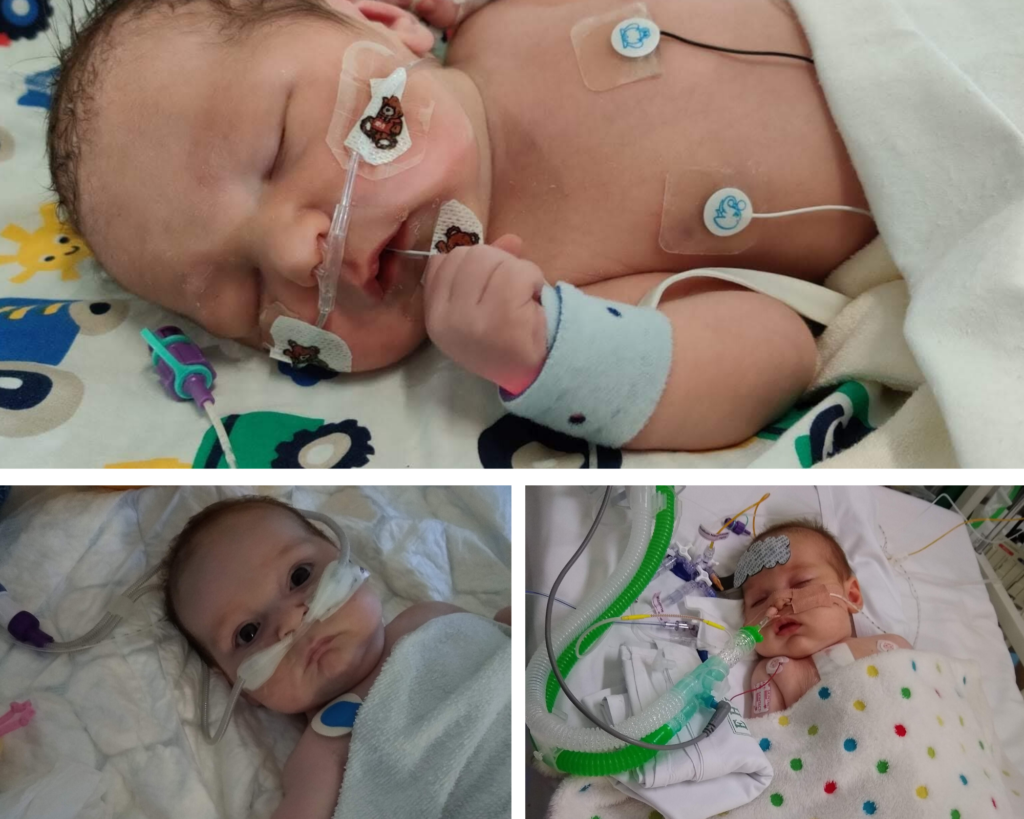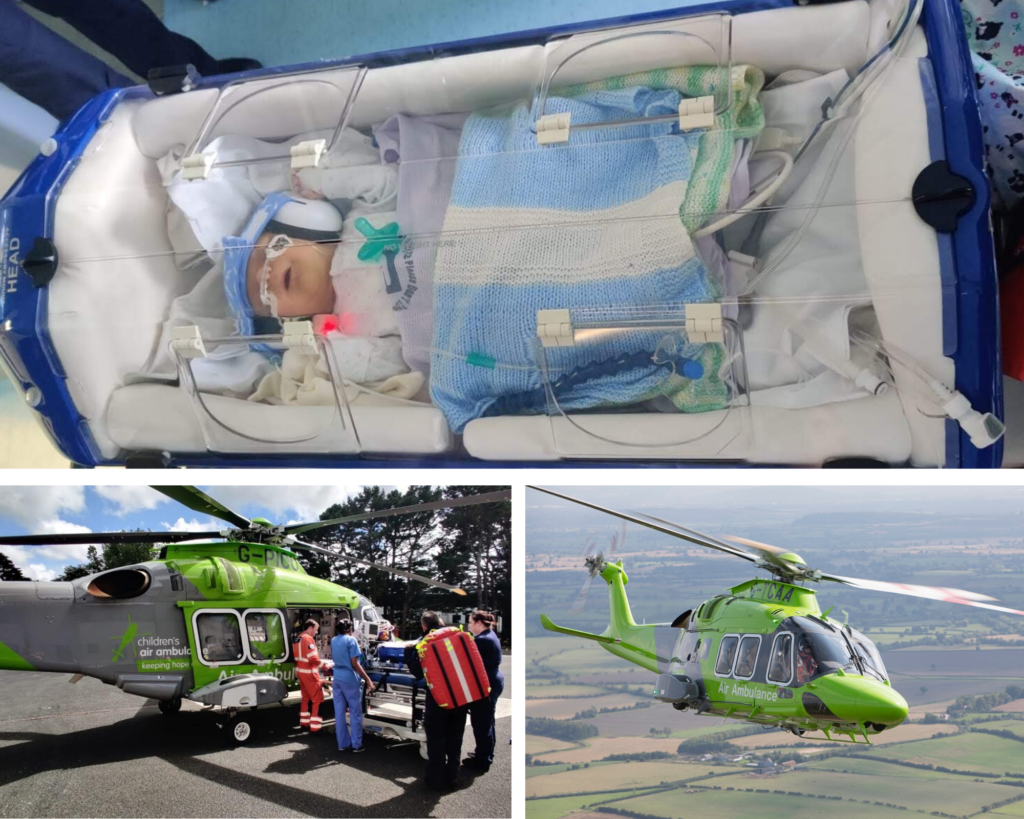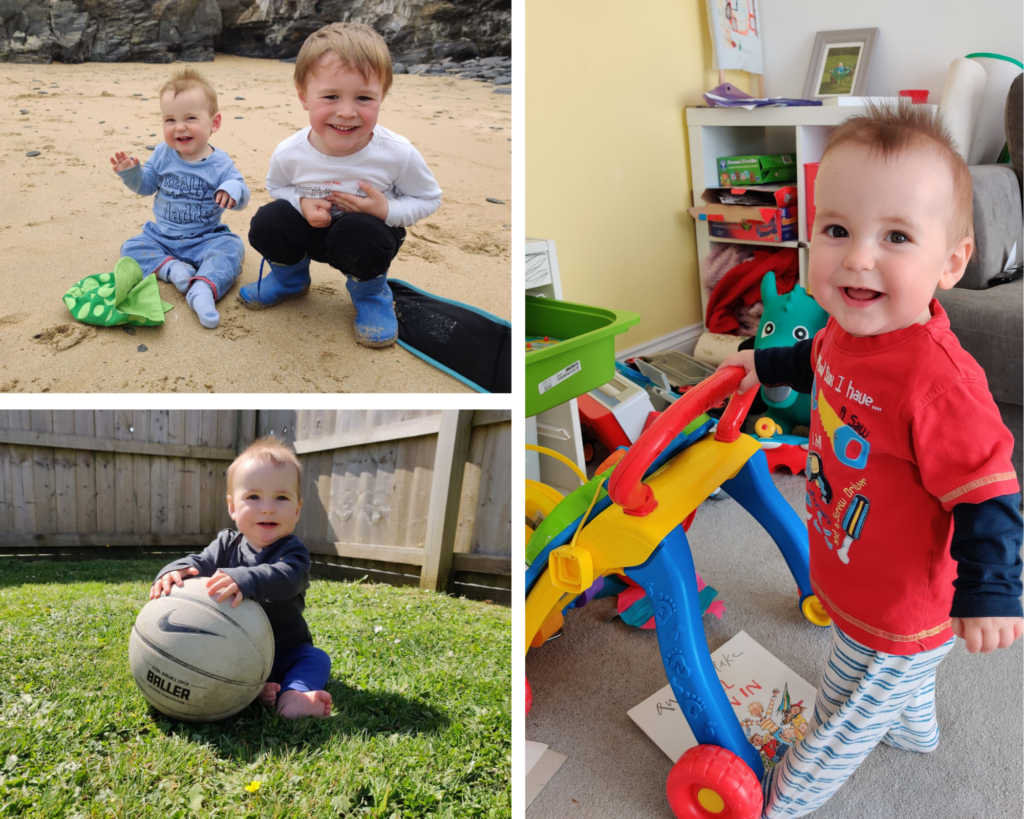News Hub
Cornwall child is the face of national charity appeal

A child from Cornwall is the face of the Children’s Air Ambulance’s (TCAA) national appeal.
When he was just three days old Oscar Edwards from St Austell was flown to Bristol Children’s Hospital – 168 miles away – so he could receive specialist treatment for a rare heart condition.
His mum Clare says that she and her husband Harry wanted to share the story of what happened to Oscar to help raise awareness of and funds for the charity, which relies on public donations to carry out their potentially lifesaving missions.
“We will never forget what the Children’s Air Ambulance did for us and are so grateful. We were despairing of ever getting Oscar to the place he needed to be and until the green helicopter arrived we had no idea that there was a service to transfer seriously ill children to the specialist care they need,” she says.
Within hours of being born by C-section at Royal Cornwall Hospital, Treliske in June last year, Oscar started making grunting noises when breathing and his oxygen saturation levels plummeted.
He was transferred to the neonatal unit where he was given antibiotics and oxygen but he didn’t improve and doctors began to suspect that he might have something wrong with his heart.

An echocardiogram was carried out and it looked as though Oscar might have a rare congenital malformation called Total Anomalous Pulmonary Venus Return (TAPVR).
The doctors in Cornwall needed a second opinion and so a video link was set up with the specialist paediatric cardiac team at Bristol Children’s Hospital.
“Apparently it was the first time in three years that a baby had been born in Cornwall with the rare condition and the doctors in Bristol said they wanted Oscar there within 48 hours. It was awful. There was no history of heart problems in our family and we were wondering why this was happening to us,” says Clare.
While newborn Oscar was kept stable and under continual monitoring in an incubator, hospital staff in Cornwall tried to make arrangements for him to be transported to Bristol.
That is where the Children’s Air Ambulance was able to help. The helicopter took off from its base in Oxford and flew to Bristol to pick up a specialist retrieval team from Wales and West Acute Transport for Children Service (WATCh) to fly them to the Royal Cornwall Hospital.
On arrival, the team prepared Oscar for the flight back to Bristol Children’s Hospital and accompanied him in the helicopter – which took just 54 minutes to complete the transfer. The same journey by road would have taken nearly three hours.

Once settled at Bristol Children’s Hospital it was confirmed that Oscar had TAPVR and after a week in Bristol undergoing tests and being monitored, he was sent home with a plan in place for surgery.

The Children’s Air Ambulance has developed over the years into the pioneering transfer service it is today. On 12 May 2013, the charity safely delivered its first patient transfer, and a little over a year later and the charity had completed 100 transfers alongside its NHS Clinical Partner Teams. The clinically designed helicopters and equipment continue to change the face of paediatric and neonatal care, with the functionality of ECMO (extracorporeal membrane oxygenation) and nitric oxide onboard, as well as the launch of three bespoke incubators in 2023.
As the charity is celebrating its 10th anniversary of providing lifesaving high-speed transfers for critically ill babies and children this year, it’s asking supporters to help mark this momentous milestone by ‘saying yes’ and supporting its latest appeal.
